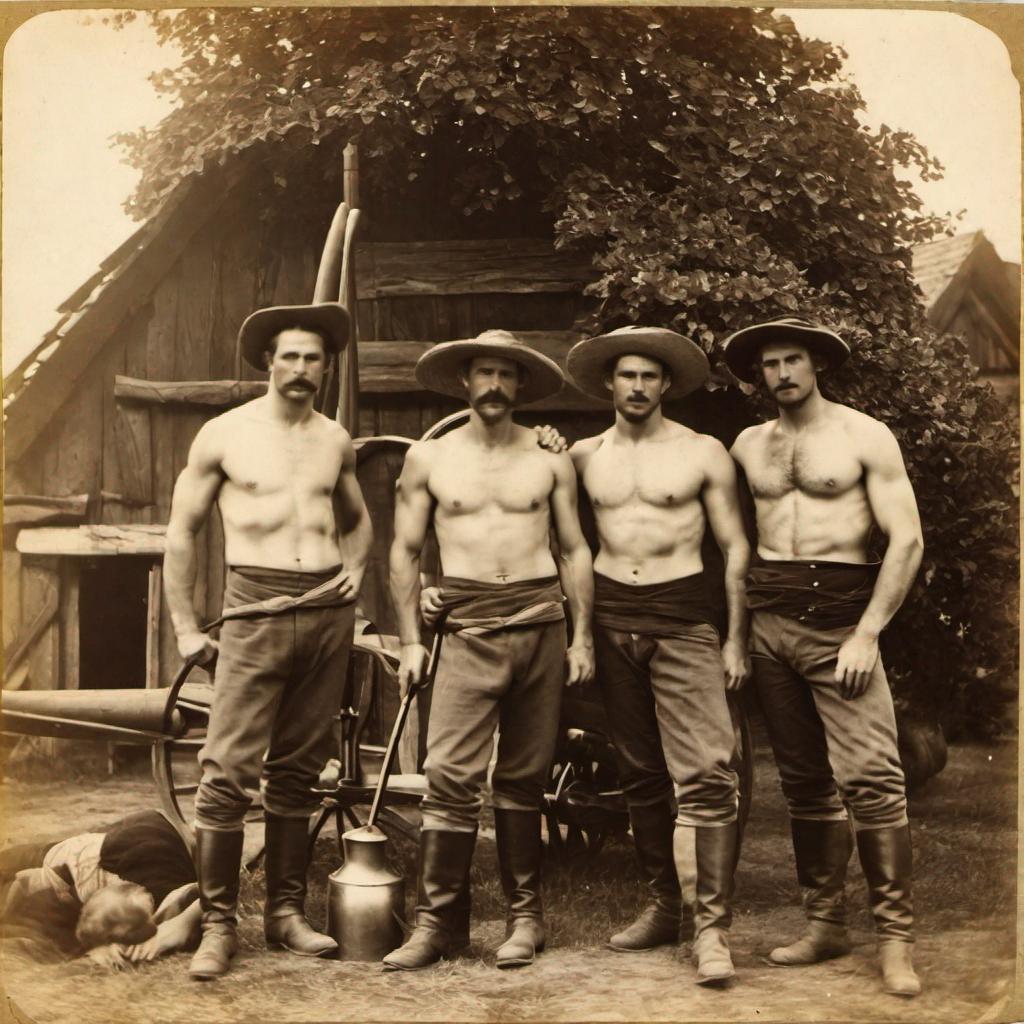A Day in the Life: Experiencing 1850 Volhynia as a Volga German
In the rich tapestry of 1850s Volhynia, the Volga Germans wove a unique thread, bringing with them traditions and lifestyles that set them apart, yet allowing them to integrate into the local fabric.
Morning in a typical household would begin with the crowing of roosters. As the first rays of sun pierced the horizon, families would gather for a morning prayer, thanking the Almighty for a new day. This was usually led by the head of the family, emphasizing the deep-rooted religiosity of these communities.
Breakfast was a simple affair - usually consisting of fresh bread, cheese, and perhaps some homemade preserves. With sustenance taken care of, it was time to attend to the day's chores.

Men would often head to the fields. The 1850s were a time of traditional farming - plowing, sowing, and reaping were done manually. Horses, if owned, were a valuable asset, assisting in the labor-intensive tasks. Women, on the other hand, would usually tend to household chores, like cleaning, cooking, or looking after the smaller livestock.
Children weren't exempt from responsibilities. They were expected to help according to their age and ability, be it fetching water, gathering firewood, or assisting in farm tasks. Nonetheless, play and camaraderie among neighborhood children were common, often taking the form of traditional games or storytelling.
Lunchtime brought the family together. Meals were hearty, with soups, potatoes, and meats being staples. Recipes handed down through generations flavored the dishes, bringing a touch of the Volga to Volhynia.
The afternoon would see continuation of work, but also moments of respite. In many households, this was a time for crafts. Women would engage in sewing, knitting, or embroidery, skills often passed down from mother to daughter.
As evening approached, the family would gather once again for dinner. This was followed by leisurely activities like reading, playing musical instruments, or simply conversing. On special occasions, neighbors might gather for a communal supper or dance.
Nighttime prayers would conclude the day, as the Volga Germans in Volhynia entrusted themselves to divine protection, ready to rise with the sun and embrace a new day's challenges and blessings.